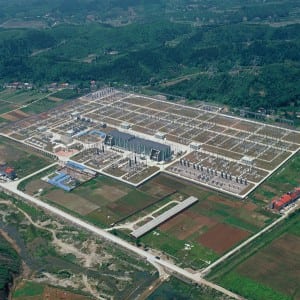Business
-
Business
Lessons Learned in Reliability Standards Compliance
It has been three years and a few months since the North American Electric Reliability Council (NERC) Reliability Standards (Standards) became mandatory and noncompliance became subject to sanctions by the Federal Energy Regulatory Commission (FERC). You might assume that because we have had no further instances of widespread cascading outages that the Standards are working. You may also assume that—considering the database of documented noncompliance with the Standards—the industry as a whole is puzzled, unprepared, or negligent in carrying out its responsibility to keep the high-voltage electric grids reliable and secure. The truth likely lies somewhere in the middle.
-
Smart Grid
Smart Grid Cyber Security Guidelines Released
The National Institute of Standards and Technology (NIST) has finalized its initial set of smart grid cyber security guidelines. NIST’s Guidelines for Smart Grid Cyber Security (NISTIR 7628) includes high-level security requirements, a framework for assessing risks, an evaluation of privacy issues in personal residences, and other information for organizations to use as they craft strategies to protect the modernizing power grid from attacks, malicious code, cascading errors, and other threats, according to NIST’s press release.
-
Legal & Regulatory
QF Contracts and 21st-Century Economics
Many power purchase agreements entered into between qualifying facilities (QF) and electric utilities during the 1980s and 1990s have several years remaining on their terms. These contracts typically require the generator to comply with the Federal Energy Regulatory Commission (FERC) regulations promulgated pursuant to the Public Utility Regulatory Policies Act (PURPA). The foremost FERC requirement […]
-
Solar
What Utility Executives Think About the Smart Grid
This summary of results from a recent Platts/Capgemini survey of North American utility executives looks at what respondents had to say about all things related to the smart grid. Nearly half of respondents’ utilities have a smart grid strategy in place, while the other half said their utility has one in development.
-
Smart Grid
"Perfect Citizen" Program to Protect the Power Grid
The National Security Agency is launching a program to protect the grid from cyber attack, along with other civilian and military critical infrastructure, while a new Department of Energy report highlights grid vulnerabilities.
-
Legal & Regulatory
Coal Ash Regulation: Playing the Name Game
What’s in a name? Would coal ash labeled as “special” hazardous waste be as easily recycled as that labeled nonhazardous waste?
-
Legal & Regulatory
Will Nuclear 2.0 Be Better, Faster, and Cheaper than Nuclear 1.0?
The nuclear renaissance has been in play for several years yet not a shovel of dirt has been turned. Why should anyone believe that Nuclear 2.0 will be an improvement?
-
Business
China Completes Ultra-High-Voltage Transmission Superhighway
The State Grid Corp. of China (SGCC) in July put into operation the world’s first ultra-high-voltage direct current (UHVDC) superhighway when it commissioned the Xiangjiaba-Shanghai link. The ±800 kV project, completed in 30 months—a year ahead of schedule—has the capacity to transmit up to 7,200 MW from the Xiangjiaba hydropower plant in southwest China to Shanghai, the country’s leading industrial and commercial center, about 2,000 kilometers (km) away.
-
Smart Grid
Addressing Smart Grid and Consumer Info
As state regulators examine whether the smart grid benefits consumers, a federal agency is looking at what information consumers need to take advantage of the technology.
-
Business
POWER Digest (September 2010)
MHI, Foster Wheeler to Support FEED for UK CCS Project. A consortium of Mitsubishi Heavy Industries (MHI) and Foster Wheeler Energy Ltd. on August 5 announced that it had received an order from E.ON UK to support the front-end engineering design (FEED) for a post-combustion carbon dioxide (CO2) capture plant proposed as part of E.ON’s […]

